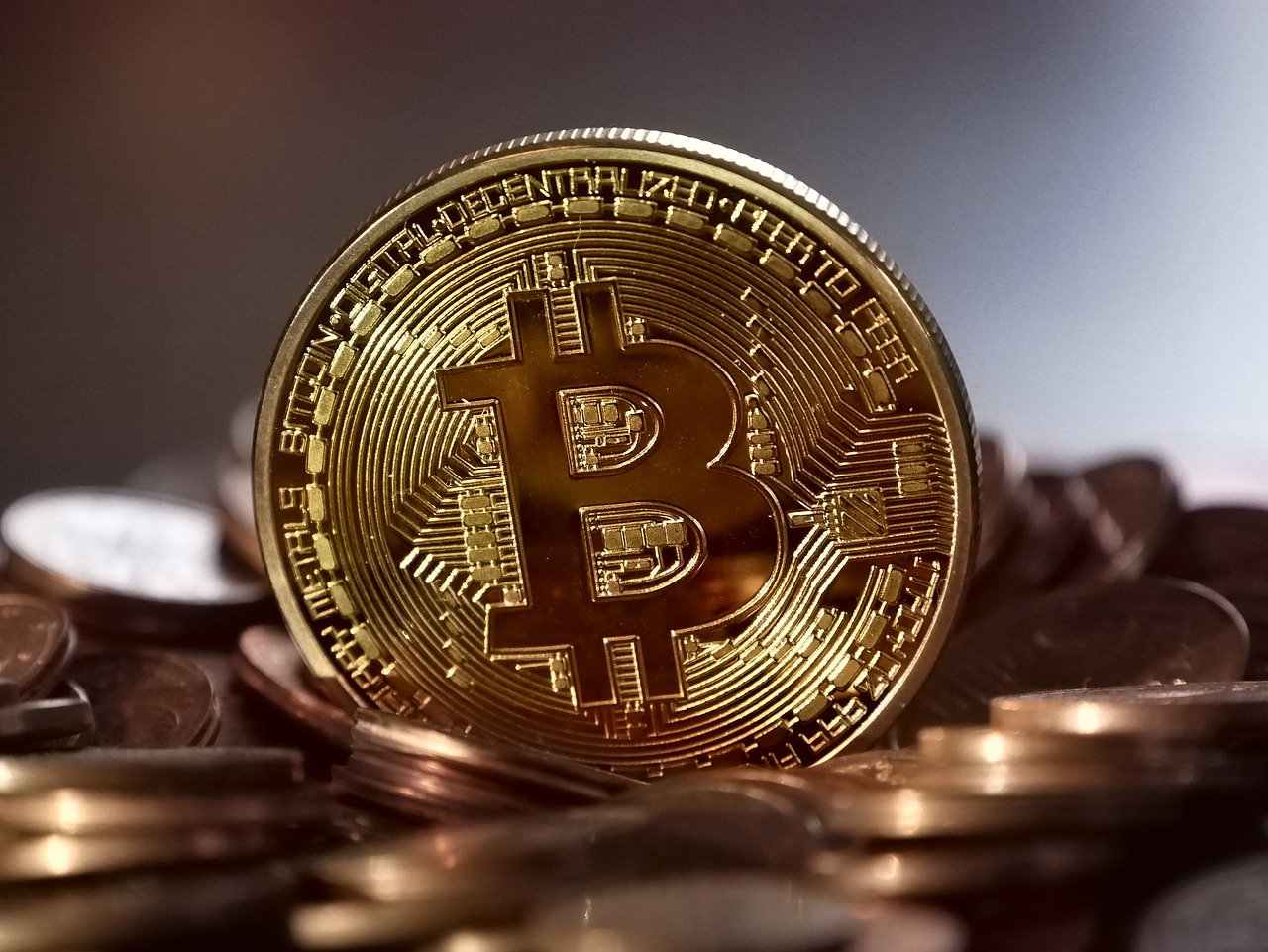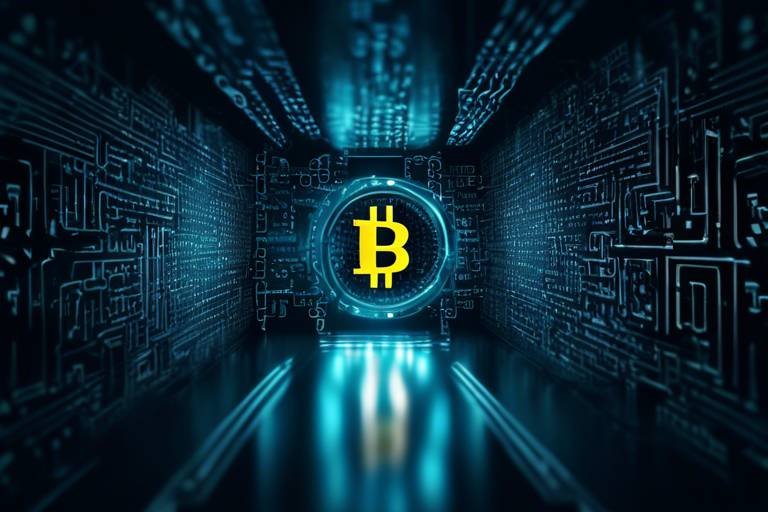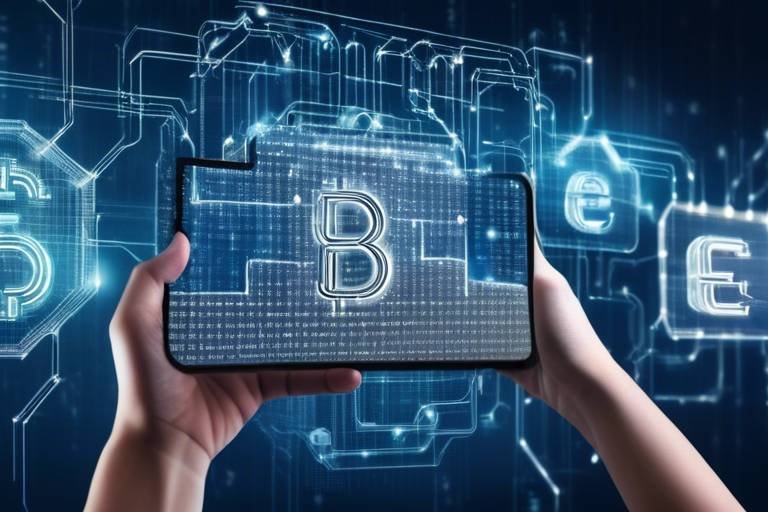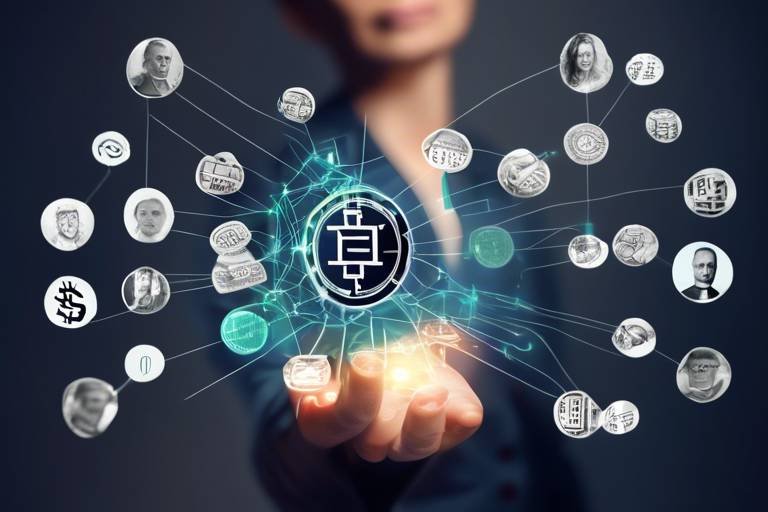The Rise of Decentralized Identity Solutions
In today's fast-paced digital landscape, where our personal information is constantly at risk, the concept of decentralized identity solutions is becoming increasingly relevant. Imagine a world where you have complete control over your digital identity, free from the clutches of centralized authorities that often mishandle our sensitive data. This is not just a dream; it is the reality that decentralized identity solutions are striving to create. They empower individuals to manage their personal information securely and privately, paving the way for a more trustworthy digital ecosystem.
The rise of these solutions is driven by a growing awareness of the vulnerabilities associated with traditional identity management systems. We’ve all heard horror stories about data breaches, identity theft, and the misuse of personal information. These incidents not only compromise our privacy but also erode trust in the platforms we use daily. Decentralized identity solutions offer a refreshing alternative, allowing users to reclaim their privacy and security.
But what exactly does it mean to have a decentralized identity? At its core, it refers to a model where individuals control their personal information without depending on a central authority. This is akin to holding the keys to your own house rather than giving them to a landlord. With decentralized identity, you decide who gets access to your information, when they can access it, and for what purpose. This level of control is revolutionary and is set to change the way we interact online.
As we delve deeper into the benefits of decentralized identity solutions, it becomes clear that they are not just about privacy and security. They also enhance user experience across various platforms. Imagine being able to log into multiple services with a single, secure credential, eliminating the need to remember countless passwords or fill out tedious forms repeatedly. This streamlined approach not only saves time but also reduces frustration, making online interactions smoother and more enjoyable.
However, the journey towards widespread adoption of decentralized identity solutions is not without its challenges. Technological complexity, user adoption barriers, and regulatory concerns pose significant hurdles. For instance, many users may find the concept of managing their own identity daunting, leading to resistance against adopting these new systems. Furthermore, as different platforms and systems emerge, the need for interoperability becomes crucial. After all, what good is a decentralized identity if it cannot be used across various services?
In conclusion, the rise of decentralized identity solutions signifies a pivotal shift in how we manage our digital identities. As we continue to explore this fascinating topic, it's essential to keep an eye on the evolving landscape, the technologies driving these changes, and the potential impact on various industries. The future looks promising, and with collective efforts, we can build a more secure and user-centric digital identity ecosystem.
- What is decentralized identity? Decentralized identity refers to a digital identity model where individuals have control over their personal information without relying on a central authority.
- What are the benefits of decentralized identity solutions? These solutions offer increased control over personal data, enhanced privacy, reduced risk of identity theft, and improved user experience.
- What challenges do decentralized identity solutions face? Challenges include technological complexity, user adoption barriers, regulatory concerns, and the need for interoperability.
- What technologies are involved in decentralized identity? Key technologies include blockchain, self-sovereign identity frameworks, cryptographic protocols, and decentralized identifiers (DIDs).
- How can decentralized identity be applied in various industries? It can be used in sectors like finance, healthcare, education, and government for identity verification and access control.

Understanding Decentralized Identity
Decentralized identity is a revolutionary concept that flips the traditional identity model on its head. Imagine a world where you, and only you, have complete control over your personal information. No more relying on centralized authorities like banks or governments to validate who you are. Instead, decentralized identity empowers individuals by enabling them to manage their identity through a secure, digital framework. This shift is akin to giving the keys of your house back to you, rather than leaving them with a landlord who can enter whenever they please.
At its core, decentralized identity leverages advanced technologies such as blockchain and cryptographic protocols to create a self-sovereign identity (SSI) framework. This means that your identity is not stored in a single location but is instead distributed across a network of nodes. Each piece of information about you is cryptographically secured, making it nearly impossible for hackers to access or manipulate your data. In essence, decentralized identity is like a digital fortress, protecting your personal information from prying eyes.
One of the most significant benefits of decentralized identity is enhanced privacy. In a world where data breaches are increasingly common, having control over your personal information is more important than ever. With decentralized identity, you can choose what information to share and with whom. For example, when applying for a job, you can provide only the necessary details without revealing your entire life story. This selective sharing not only protects your privacy but also reduces the risk of identity theft.
Furthermore, decentralized identity fosters trust in digital interactions. When you can verify your identity without a central authority, it builds confidence in online transactions, whether you're shopping, signing contracts, or accessing services. This trust is crucial in today's digital age, where skepticism about online interactions is rampant. By putting the power of identity back into the hands of individuals, decentralized identity paves the way for a more secure and user-centric digital landscape.
In summary, understanding decentralized identity is about recognizing its potential to transform how we interact online. It empowers individuals, enhances privacy, and fosters trust, making it a crucial component of the future digital ecosystem. As we continue to navigate the complexities of our digital lives, decentralized identity offers a promising solution that prioritizes user control and security.

Benefits of Decentralized Identity
Decentralized identity solutions are quickly becoming a game changer in the realm of digital interactions. Imagine a world where you have complete control over your personal information, where you decide who gets to see what, and when. This is not just a dream; it’s a reality that decentralized identity is making possible. One of the most significant benefits is the **increased user control** over personal data. In traditional systems, your data is often stored in centralized databases, leaving it vulnerable to breaches. With decentralized identity, the power shifts back to you, allowing you to manage your information securely and privately.
Another compelling advantage is the **enhanced privacy** that comes with these solutions. In a digital landscape where data is often commodified, users can reclaim their privacy. By using decentralized identifiers (DIDs), individuals can interact without exposing unnecessary personal information. This means that you can verify your identity without revealing sensitive details, like your home address or social security number. It's akin to showing a bouncer your ID without disclosing your entire life story.
Furthermore, decentralized identity significantly reduces the risk of **identity theft**. Since your information is not stored in a central location, the chances of hackers accessing a treasure trove of personal data are drastically minimized. Instead of relying on passwords—which can be easily compromised—decentralized solutions utilize cryptographic methods that are far more secure. Think of it as having a vault that only you can access, rather than a flimsy locker in a busy gym.
The **improved user experience** across various platforms is another noteworthy benefit. Imagine logging into different services without the hassle of remembering multiple passwords or going through tedious verification processes. With decentralized identity, a single, secure identity can grant you access to multiple services seamlessly. This streamlined approach not only saves time but also enhances user satisfaction, making online interactions smoother and more enjoyable.
To further illustrate these benefits, consider the following table that outlines the key advantages of decentralized identity compared to traditional identity management systems:
| Feature | Decentralized Identity | Traditional Identity Management |
|---|---|---|
| User Control | Full control over personal data | Limited control, data often owned by companies |
| Privacy | Enhanced privacy through selective disclosure | Data often shared without user consent |
| Security | Reduced risk of identity theft | Vulnerable to centralized data breaches |
| User Experience | Seamless access across platforms | Multiple passwords and verification hurdles |
In summary, the benefits of decentralized identity solutions are vast and transformative. They empower users with control, enhance privacy, bolster security against identity theft, and improve the overall user experience. As we continue to navigate an increasingly digital world, these advantages are not just appealing—they're essential for fostering a safer online environment.
- What is decentralized identity? Decentralized identity refers to a digital identity model where individuals control their personal information without relying on a central authority.
- How does decentralized identity enhance privacy? It allows users to verify their identity without disclosing unnecessary personal information.
- What are the security benefits of decentralized identity? It reduces the risk of identity theft by minimizing centralized data storage, which is often targeted by hackers.
- Can decentralized identity improve user experience? Yes, it allows for seamless access across multiple platforms without the need for numerous passwords.

Challenges and Limitations
While the concept of decentralized identity solutions is revolutionary, it is not without its . One of the primary hurdles is the technological complexity involved in implementing these systems. Unlike traditional identity management systems, which often have a straightforward structure, decentralized identity relies on a myriad of technologies, including blockchain and cryptographic protocols. This complexity can be daunting for both developers and users, leading to potential confusion and resistance to adoption.
Another significant barrier is user adoption. Many individuals are still unfamiliar with the concept of decentralized identity and may feel overwhelmed by the technical jargon associated with it. This unfamiliarity can create a reluctance to engage with these solutions, as users may prefer the comfort of established methods, even if they are less secure. Furthermore, the lack of education and awareness surrounding decentralized identity can exacerbate this issue, leaving potential users in the dark about the benefits and functionalities of these systems.
Regulatory concerns also pose a challenge. As decentralized identity solutions emerge, they must navigate a complex landscape of existing laws and regulations. This can create a legal grey area that complicates compliance for organizations implementing these technologies. For instance, questions arise about how to manage data protection and privacy laws when users have complete control over their information. Without clear regulatory guidelines, businesses may hesitate to invest in decentralized identity solutions, fearing potential legal repercussions.
Moreover, the need for interoperability among different platforms and systems cannot be overstated. For decentralized identity to reach its full potential, various systems must be able to communicate and work seamlessly together. However, achieving this level of interoperability is no small feat. It requires collaboration among diverse stakeholders, including technology providers, regulatory bodies, and end-users. The absence of established standards can hinder progress, making it difficult for organizations to develop solutions that can integrate with existing infrastructures.
Lastly, there is the risk of identity fragmentation. As users create multiple decentralized identities across various platforms, managing these identities can become chaotic. Without a central authority to oversee these identities, users may struggle to keep track of their information, leading to potential security risks. This fragmentation can also create barriers to a cohesive user experience, undermining the very benefits that decentralized identity aims to provide.
In summary, while decentralized identity solutions hold great promise, they also face significant challenges that must be addressed. From technological complexity and user adoption to regulatory concerns and interoperability issues, a concerted effort is needed from all stakeholders to overcome these limitations. Only then can we unlock the full potential of decentralized identity and pave the way for a more secure and user-centric digital landscape.
- What is decentralized identity? Decentralized identity is a digital identity model where individuals have control over their personal information without relying on a central authority.
- What are the main benefits of decentralized identity solutions? Benefits include increased user control over personal data, enhanced privacy, reduced risk of identity theft, and improved user experience across platforms.
- What challenges do decentralized identity solutions face? Key challenges include technological complexity, user adoption barriers, regulatory concerns, and the need for interoperability among different systems.
- How do decentralized identity solutions impact privacy and security? They enhance privacy by allowing users to control their data and reduce the risk of identity theft by minimizing reliance on centralized systems.
- What technologies are involved in decentralized identity? Key technologies include blockchain, self-sovereign identity frameworks, cryptographic protocols, and decentralized identifiers (DIDs).

Technologies Behind Decentralized Identity
When we talk about decentralized identity, it's essential to understand the cutting-edge technologies that make it possible. At the heart of this movement lies blockchain technology, which serves as a secure and transparent ledger for recording identities without the need for a central authority. Imagine a digital world where your identity is not locked away in a vault controlled by a single entity, but rather, it’s like a treasure chest that only you have the key to. This revolutionary approach not only enhances security but also empowers users by giving them full control over their personal data.
Another critical component is the Self-Sovereign Identity (SSI) framework. SSI allows individuals to create and manage their own identities independently. Think of it as having a personal assistant that organizes your identity documents and only shares them when you say so. This concept not only streamlines identity verification processes but also significantly reduces the risk of identity theft, as users can control who accesses their information and when.
Moreover, cryptographic protocols play a crucial role in ensuring that data remains secure. These protocols use complex algorithms to encrypt personal information, making it nearly impossible for unauthorized users to access it. In a way, it’s like having a secret code that only you and your trusted contacts can decipher. This level of security is vital in a world where data breaches are alarmingly common.
Additionally, Decentralized Identifiers (DIDs) are an innovative technology that facilitates the creation of unique identifiers for individuals. Unlike traditional identifiers, which are typically issued by a central authority, DIDs are generated and controlled by the users themselves. This means that your identity is portable and can be used across various platforms without the need to create multiple accounts. Picture it as a universal key that opens any door you choose, without the hassle of remembering a dozen different passwords.
To illustrate how these technologies work together, let’s take a look at the following table that summarizes their roles in decentralized identity:
| Technology | Function |
|---|---|
| Blockchain | Provides a secure, immutable ledger for identity management. |
| Self-Sovereign Identity (SSI) | Empowers users to control their own digital identities. |
| Cryptographic Protocols | Ensures data security through encryption. |
| Decentralized Identifiers (DIDs) | Allows the creation of unique, user-controlled identifiers. |
In summary, the technologies behind decentralized identity are not just tools; they represent a paradigm shift in how we think about identity in the digital age. By leveraging blockchain, SSI frameworks, cryptographic protocols, and DIDs, we can create a more secure, user-centric online environment. As we move forward, these technologies will continue to evolve, paving the way for a future where individuals have complete ownership of their identities.
- What is decentralized identity? Decentralized identity is a model where individuals control their personal information without relying on a central authority.
- How does blockchain contribute to decentralized identity? Blockchain provides a secure and transparent ledger for managing identities, ensuring data integrity and security.
- What are Decentralized Identifiers (DIDs)? DIDs are unique identifiers that users create and manage themselves, allowing for portable and secure identity verification.
- What challenges do decentralized identity solutions face? Challenges include technological complexity, user adoption barriers, and regulatory concerns.

Use Cases in Various Industries
The concept of decentralized identity is not just a theoretical framework; it has practical applications that are beginning to reshape various industries. Imagine a world where you have complete control over your personal information, and your identity can be verified without the need for a central authority. This is the promise of decentralized identity solutions, and they are already making waves in several sectors.
In the finance industry, decentralized identity can streamline the onboarding process for new customers. Traditional banking often requires extensive documentation and verification, which can be cumbersome and time-consuming. With decentralized identity, customers can provide verifiable credentials directly from their digital wallets, significantly reducing the time it takes to open an account. Moreover, this approach enhances security by minimizing the risk of data breaches associated with centralized databases.
Moving on to the healthcare sector, decentralized identity solutions can revolutionize patient data management. Patients can control who accesses their medical records and for what purpose. This not only empowers individuals but also ensures compliance with regulations like HIPAA. For instance, a patient could grant temporary access to their health records to a new doctor without having to fill out endless forms or worry about their data being stored in multiple locations.
In the field of education, decentralized identity can simplify the verification of academic credentials. Imagine a future where employers can easily verify a candidate's qualifications through a secure digital ledger without the need for lengthy background checks. This not only speeds up the hiring process but also reduces the chances of fraudulent claims, which can be a significant issue in today’s job market.
Governments are also exploring the potential of decentralized identity solutions. For instance, digital identities can streamline processes such as voting and access to public services. Citizens could use their decentralized identifiers (DIDs) to securely vote from their devices, ensuring that their votes are counted without the risk of tampering. Additionally, access to government services could be made more efficient, allowing individuals to prove their identity without the need for physical documents.
In summary, the applications of decentralized identity span across various industries, each with its unique challenges and opportunities. As organizations continue to explore these solutions, the potential for enhanced security, improved user experience, and greater control over personal data becomes increasingly apparent. The future is bright for decentralized identity, and its impact will likely be felt across the globe.
To further illustrate the diverse applications of decentralized identity, here’s a table summarizing some key use cases in different industries:
| Industry | Use Case | Benefits |
|---|---|---|
| Finance | Streamlined customer onboarding | Faster verification, enhanced security |
| Healthcare | Patient data management | Improved privacy, compliance with regulations |
| Education | Verification of academic credentials | Speedy hiring, reduced fraud |
| Government | Secure voting and access to services | Efficient processes, enhanced security |

Regulatory Considerations
As the landscape of decentralized identity solutions evolves, it becomes increasingly important to consider the regulatory frameworks that govern these technologies. With the promise of enhanced privacy and security, there are also significant legal implications that need to be addressed. Regulatory bodies around the world are grappling with how to create guidelines that not only protect users but also foster innovation. One of the primary challenges is striking a balance between user privacy and the need for regulatory compliance.
The decentralized nature of these identity solutions means that traditional regulatory approaches may not be sufficient. Since individuals control their own data without a central authority, it raises questions about accountability and compliance with existing laws, such as the General Data Protection Regulation (GDPR) in Europe or the California Consumer Privacy Act (CCPA) in the United States. These laws are designed to protect personal data, but they often assume a centralized model of data management.
Moreover, the cross-border nature of digital identities complicates matters further. Different countries have varying regulations regarding data protection and privacy, which can lead to a fragmented approach. For instance, a decentralized identity solution that works seamlessly in one jurisdiction may face hurdles in another due to differing legal requirements. This situation creates a pressing need for international collaboration and standardization in regulatory practices.
To address these challenges, stakeholders—including governments, tech companies, and civil society—must engage in open dialogues to develop comprehensive regulatory frameworks. Such frameworks should aim to:
- Ensure that users have control over their own data while also providing mechanisms for accountability.
- Encourage innovation in decentralized identity technologies without compromising user privacy.
- Facilitate interoperability among different decentralized identity systems to promote widespread adoption.
In addition, regulatory bodies should consider implementing pilot programs that allow for experimentation with decentralized identity solutions in a controlled environment. This approach can provide valuable insights into how these technologies operate in practice and what regulations are necessary to support them.
Ultimately, the goal of any regulatory consideration should be to create a safe and secure environment for users while fostering an ecosystem that encourages the development of innovative solutions. As we move forward, it will be crucial to continuously assess the effectiveness of these regulations and make adjustments as necessary to keep pace with the rapidly changing digital landscape.
Q1: What are decentralized identity solutions?
A1: Decentralized identity solutions allow individuals to control their personal information without relying on a central authority, enhancing privacy and security in online interactions.
Q2: How do regulations impact decentralized identity?
A2: Regulations can either facilitate or hinder the adoption of decentralized identity solutions, depending on how well they balance user privacy and innovation.
Q3: What are the key challenges in regulating decentralized identity?
A3: Key challenges include technological complexity, varying international laws, and the need for interoperability among different systems.
Q4: How can stakeholders collaborate on regulatory frameworks?
A4: Stakeholders can engage in dialogues, share best practices, and participate in pilot programs to develop effective regulatory frameworks that support decentralized identity solutions.

Future Trends in Decentralized Identity
The landscape of decentralized identity is rapidly evolving, and the future holds exciting possibilities that could reshape how we interact with digital identities. As technology advances and the need for privacy and security intensifies, several key trends are emerging. One of the most significant trends is the increasing integration of decentralized identity solutions into everyday applications. Imagine logging into your favorite social media platform or online banking service without having to remember yet another password. This seamless experience is becoming more achievable as organizations recognize the benefits of adopting decentralized identity frameworks.
Another trend is the growing emphasis on collaboration among stakeholders. Tech companies, governments, and regulatory bodies are beginning to understand that a unified approach is essential for the successful implementation of decentralized identity solutions. By working together, these entities can create standards and protocols that ensure interoperability across various platforms, allowing users to maintain control of their identities regardless of where they are online. This collaboration not only enhances user experience but also builds trust in the technology.
Moreover, public awareness and education around decentralized identity are expected to increase. As consumers become more informed about their digital rights and the importance of data privacy, they will likely demand more control over their personal information. This shift in consumer behavior will push businesses to adopt decentralized identity solutions to meet the growing expectations for transparency and security. In fact, organizations that prioritize user-centric identity management may find themselves at a competitive advantage in the market.
Furthermore, we can anticipate advancements in blockchain technology, which is the backbone of many decentralized identity solutions. As blockchain becomes more scalable and efficient, it will enable faster and more secure transactions, making decentralized identity solutions even more appealing. With the rise of decentralized finance (DeFi) and non-fungible tokens (NFTs), the integration of identity verification within these ecosystems will become crucial, leading to innovative use cases that enhance security and user experience.
In addition, the emergence of artificial intelligence (AI) and machine learning (ML) technologies will play a pivotal role in the future of decentralized identity. These technologies can help analyze user behavior and patterns, allowing for more intelligent and adaptive identity verification processes. For instance, AI could assist in identifying potential fraud attempts or unauthorized access, thereby enhancing the overall security of decentralized identity systems.
As we look to the future, the regulatory landscape will also evolve to better accommodate decentralized identity solutions. Policymakers will need to create frameworks that protect user privacy while encouraging innovation. This balance is crucial, as overly stringent regulations could stifle the growth of these technologies, whereas lax regulations could compromise user security. A collaborative approach between technologists and regulators will be essential to navigate these challenges effectively.
In summary, the future of decentralized identity is bright, marked by technological advancements, increased collaboration, and heightened public awareness. As these trends continue to unfold, we can expect a more secure, user-centric digital identity landscape that empowers individuals while fostering trust and innovation in the digital realm.
- What is decentralized identity? Decentralized identity is a digital identity model where individuals have control over their personal information without relying on a central authority.
- How does decentralized identity enhance privacy? It allows users to manage their own data, reducing the risk of unauthorized access and identity theft.
- What technologies support decentralized identity? Key technologies include blockchain, self-sovereign identity frameworks, cryptographic protocols, and decentralized identifiers (DIDs).
- What industries can benefit from decentralized identity? Various sectors, including finance, healthcare, education, and government, can leverage decentralized identity for improved identity verification and access control.

Real-World Implementations
As we dive into the realm of decentralized identity solutions, it's essential to highlight how these innovative technologies are being applied in the real world. Various organizations and initiatives are already harnessing the power of decentralized identities to enhance security, user privacy, and streamline processes across multiple sectors. The beauty of decentralized identity lies in its ability to provide individuals with control over their personal data, while also ensuring that organizations can verify identities without compromising sensitive information.
In the financial sector, for example, banks and fintech companies are experimenting with decentralized identity to improve customer onboarding processes. Traditional methods often involve cumbersome paperwork and lengthy verification times. However, with decentralized identity, customers can share verified credentials directly from their digital wallets, significantly speeding up the process. This not only enhances the user experience but also reduces the risk of identity fraud, as the verification happens through secure and tamper-proof blockchain technology.
Healthcare is another industry where decentralized identity solutions are making waves. Imagine a world where patients can control who accesses their medical records. With decentralized identity, healthcare providers can verify a patient's identity without needing to store sensitive data on centralized servers. This not only protects patient privacy but also ensures that data is only shared with authorized personnel. For instance, initiatives like MedRec leverage blockchain to manage medical records, allowing patients to grant and revoke access to their data seamlessly.
The education sector is also witnessing a shift towards decentralized identity. Institutions are adopting these solutions to issue verifiable credentials to students. Instead of relying on traditional paper diplomas, which can be easily forged, schools and universities are issuing digital credentials that can be stored in a secure digital wallet. This not only simplifies the verification process for employers but also empowers students to take ownership of their educational achievements. Platforms like Blockcerts are leading the charge in this area, enabling educational institutions to issue blockchain-based certificates.
Governments around the globe are starting to explore decentralized identity as well. For instance, some countries are developing digital identity programs that allow citizens to manage their own identities and access government services securely. This approach not only enhances efficiency but also reduces the burden on government agencies to manage sensitive personal data. Countries like Estonia have already implemented such systems, allowing citizens to access a range of services using a single digital identity.
As we look at these implementations, it’s clear that the potential for decentralized identity solutions is vast. They are not just a theoretical concept but are actively being integrated into various industries, showcasing their practical benefits. However, the journey is just beginning, and as these technologies evolve, we can expect to see even more innovative applications that enhance security, privacy, and user control.
- What is decentralized identity? Decentralized identity is a digital identity model that allows individuals to control their personal information without relying on a central authority.
- How does decentralized identity improve security? By using technologies like blockchain, decentralized identity reduces the risks of data breaches and identity theft, as personal information is not stored in a single location.
- What industries can benefit from decentralized identity? Industries such as finance, healthcare, education, and government are already leveraging decentralized identity solutions to enhance security and user experience.
- Are there any challenges to implementing decentralized identity? Yes, challenges include technological complexity, user adoption barriers, regulatory concerns, and the need for interoperability among different platforms.

Conclusion: The Path Forward
As we stand at the crossroads of digital identity management, the rise of decentralized identity solutions presents a remarkable opportunity to reshape how we interact online. The potential for empowering individuals to control their own personal data is not just a technological advancement; it's a fundamental shift in the way we think about privacy and security in our digital lives. Imagine a world where your identity is not stored in a vulnerable central database but is instead securely managed by you, the owner. This is the promise of decentralized identity.
However, realizing this vision requires collaboration among various stakeholders, including technology developers, businesses, regulators, and users themselves. Each group has a role to play in overcoming the challenges that decentralized identity solutions face. For instance, technological complexity and user adoption barriers must be addressed through education and user-friendly designs that demystify the technology. Regulatory frameworks also need to evolve, ensuring that they protect individuals without stifling innovation.
Furthermore, interoperability among different decentralized identity systems is crucial. Without it, we risk creating silos that hinder the seamless experience users expect. This means establishing common standards and protocols that allow different platforms to communicate effectively. As we move forward, the emphasis should be on fostering an ecosystem where decentralized identity can thrive, benefiting everyone involved.
In the coming years, we can anticipate exciting advancements in technology, including enhanced cryptographic methods and more robust self-sovereign identity frameworks. Increased collaboration among stakeholders will also likely lead to innovative solutions that address the current limitations. Importantly, as public awareness grows, individuals will become more informed about their rights and the importance of protecting their digital identities.
In conclusion, the path forward for decentralized identity solutions is bright but requires concerted effort and commitment from all parties involved. By working together, we can create a more secure, user-centric digital identity landscape that not only protects individual privacy but also fosters trust in online interactions. It’s a journey worth embarking on, as the implications for our digital future are profound.
- What is decentralized identity?
Decentralized identity is a digital identity model where individuals control their personal information without relying on a central authority. - What are the benefits of decentralized identity solutions?
They offer increased user control over personal data, enhanced privacy, reduced risk of identity theft, and improved user experience across various platforms. - What challenges do decentralized identity solutions face?
Challenges include technological complexity, user adoption barriers, regulatory concerns, and the need for interoperability among systems. - Which technologies support decentralized identity?
Key technologies include blockchain, self-sovereign identity frameworks, cryptographic protocols, and decentralized identifiers (DIDs). - How can decentralized identity be applied in various industries?
It can be used in finance, healthcare, education, and government for identity verification and access control.
Frequently Asked Questions
- What is decentralized identity?
Decentralized identity is a digital identity model that allows individuals to control their personal information without relying on a central authority. This innovative approach enhances privacy and security in online interactions, making it easier for users to manage their identities across various platforms.
- What are the main benefits of using decentralized identity solutions?
Decentralized identity solutions offer several advantages, including:
- Increased user control over personal data
- Enhanced privacy and security
- Reduced risk of identity theft
- Improved user experience across different services
These benefits empower individuals to take charge of their digital identities, fostering trust in online interactions.
- What challenges do decentralized identity solutions face?
Despite their potential, decentralized identity solutions encounter several challenges, such as:
- Technological complexity
- User adoption barriers
- Regulatory concerns
- The need for interoperability among various platforms
Addressing these challenges is crucial for the widespread adoption of decentralized identity solutions.
- What technologies are behind decentralized identity?
Key technologies driving decentralized identity include:
- Blockchain technology
- Self-sovereign identity frameworks
- Cryptographic protocols
- Decentralized identifiers (DIDs)
These technologies facilitate secure and verifiable identity management, ensuring that users can trust their digital identities.
- How can decentralized identity be applied across different industries?
Decentralized identity solutions can be utilized in various sectors, including:
- Finance
- Healthcare
- Education
- Government
Each of these industries can benefit from innovative identity verification and access control methods, leading to improved security and user experiences.
- What regulatory considerations should be taken into account?
As decentralized identity solutions evolve, regulatory frameworks must adapt to address privacy concerns, data protection, and compliance with existing laws. This ensures a balance between innovation and security, allowing for the safe implementation of these technologies.
- What does the future hold for decentralized identity?
The future of decentralized identity is promising, with expected advancements in technology, increased collaboration among stakeholders, and greater public awareness. These trends will pave the way for widespread adoption and integration of decentralized identity solutions in our daily lives.
- Are there any real-world implementations of decentralized identity?
Yes, several organizations and initiatives are already implementing decentralized identity solutions. These real-world applications showcase the positive impact on user privacy and data security, demonstrating the practicality and effectiveness of this approach.



















